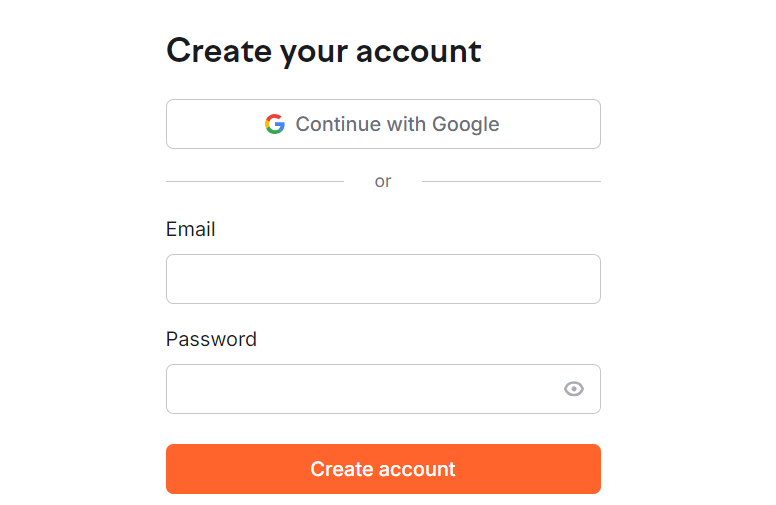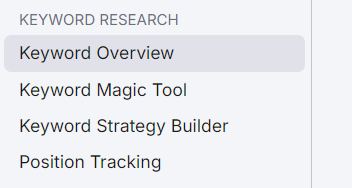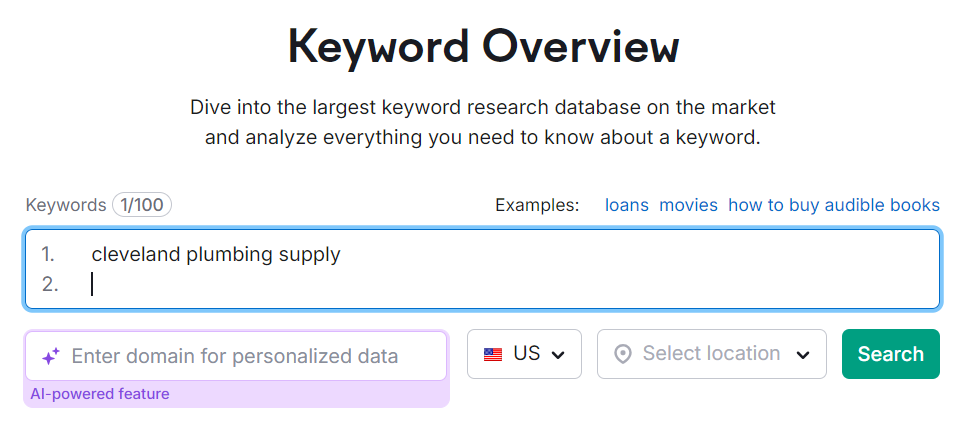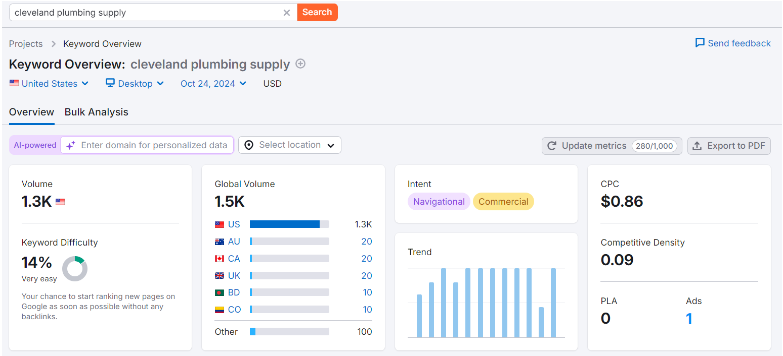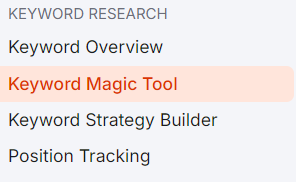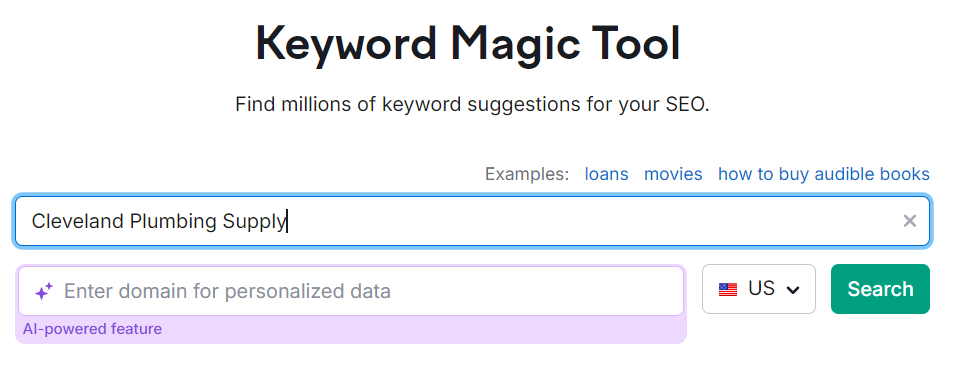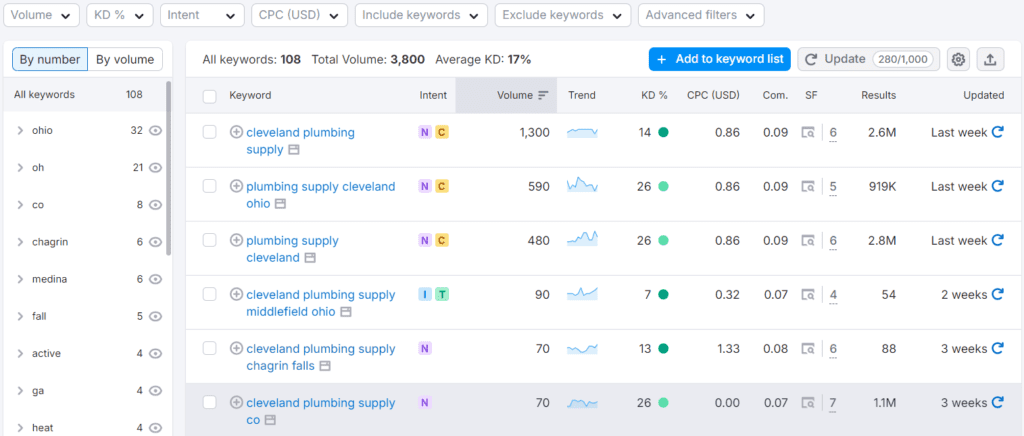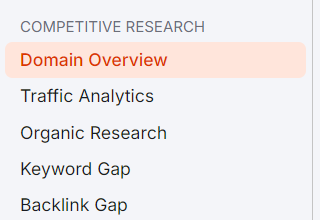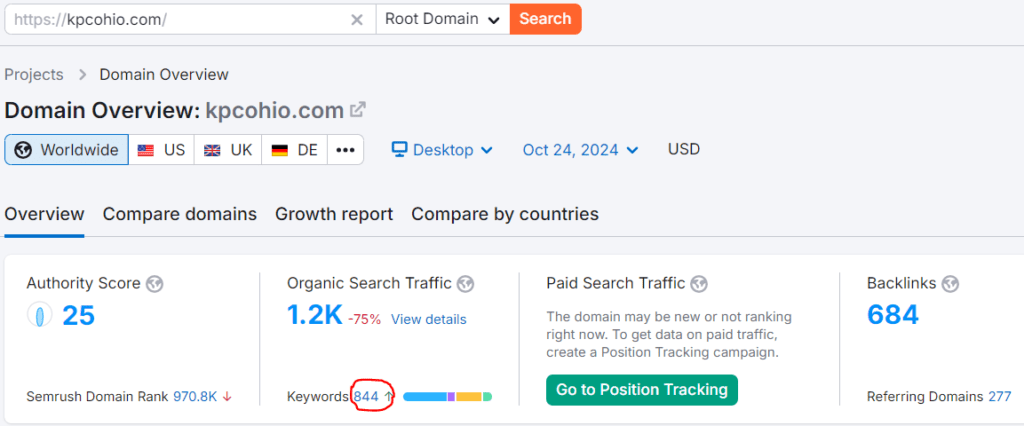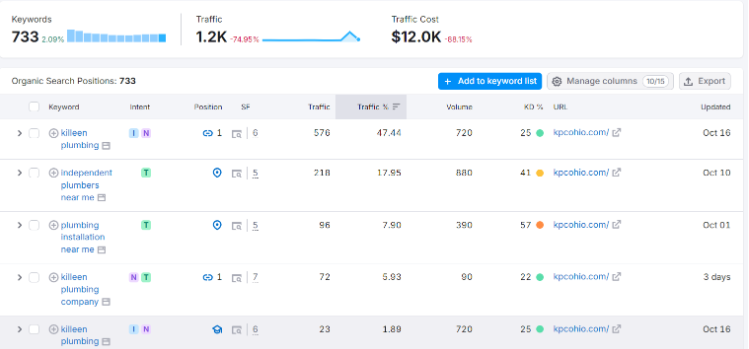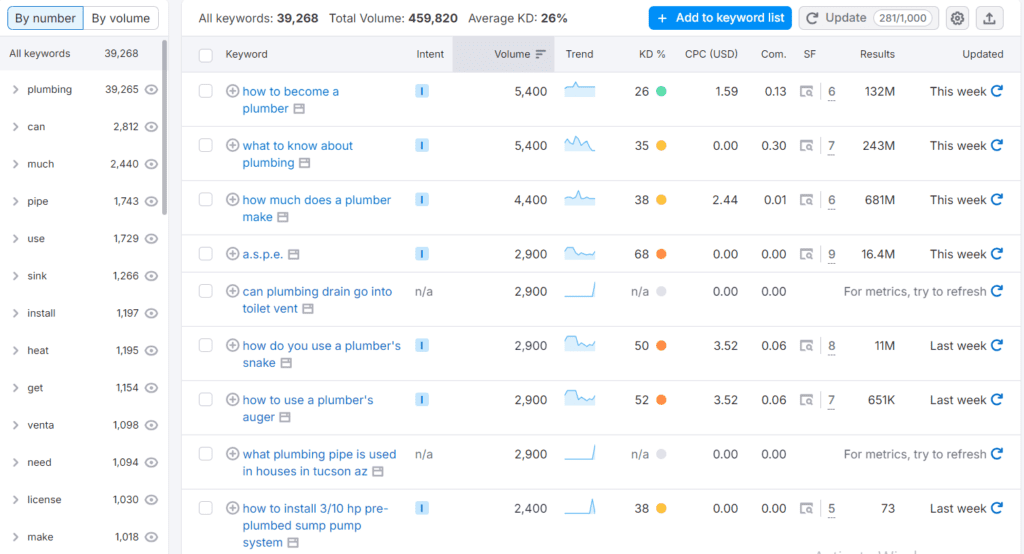If you want your blog to reach more readers, using the right keywords is essential. Keywords are the terms people type into search engines when looking for information. They help your content show up in search results, making it easier for your target audience to find you.
SEMrush is a powerful tool that makes finding and analyzing keywords easy. Whether you’re new to blogging or have been writing for a while, SEMrush can help you discover keywords that will drive traffic to your blog and improve your search rankings.
In this guide, we’ll show you how to use SEMrush to find the best keywords for your business blog. You’ll learn how to analyze competitors, explore related keywords, and build a list of valuable terms that can enhance your content. Let’s get started!
Understanding the Basics of Keywords
Keywords are the words and phrases that users enter into search engines when looking for information. They play a crucial role in helping your blog content reach the right audience. Understanding the different types of keywords and their significance can greatly improve your content strategy.
What Are Keywords?
Keywords are the bridge between what people are searching for and the content you create. By incorporating relevant keywords into your blog, you increase the chances of your articles appearing in search results.
Short-Tail vs. Long-Tail Keywords
Short-Tail Keywords: These are general keywords that typically consist of one or two words (e.g., “marketing” or “shoes”). They tend to have high search volumes but are also highly competitive, making it difficult to rank for them.
Long-Tail Keywords: These are more specific phrases that usually consist of three or more words (e.g., “best marketing strategies for small businesses” or “comfortable running shoes for flat feet”). Although they have lower search volumes, long-tail keywords often lead to higher conversion rates, as they target users with specific needs or intentions.
Why Keywords Matter
Using the right keywords in your blog helps search engines understand what your content is about, making it more likely to be displayed to users searching for those terms. Effective keyword research can lead to increased organic traffic, better engagement, and improved rankings in search results.
Setting Up Your SEMrush Account
To begin using SEMrush, you’ll first need to set up an account. Here’s how:
- Visit the SEMrush website and click on the “Sign Up” button.
- Choose a pricing plan that suits your needs (SEMrush offers a free trial for new users).
- Complete the registration process by providing your email address and creating a password.
 Once your account is set up, you’ll be ready to start your keyword research journey.
Once your account is set up, you’ll be ready to start your keyword research journey.
Finding Keywords with the Keyword Overview Tool
The Keyword Overview tool in SEMrush is a great starting point for your keyword research. Here’s how to use it:
- Log in to your SEMrush account and navigate to the “Keyword Overview” tool.

- Enter a keyword or phrase relevant to your business in the search bar.

- Analyze the results: You’ll see important metrics, including:
->Search Volume: The average number of times users search for this keyword each month.
->Keyword Difficulty: A percentage indicating how difficult it is to rank for this keyword.
->CPC (Cost Per Click): The average cost advertisers pay for clicks on ads targeting this keyword.

These metrics will help you gauge the potential of each keyword for your blog.
Exploring Related Keywords
To find additional keyword opportunities, use the Keyword Magic Tool in SEMrush. Here’s how:
- Access the Keyword Magic Tool from the main dashboard.

- Enter your seed keyword into the search bar.

- Filter the results based on metrics such as search volume, keyword difficulty, and more.

This tool will generate a comprehensive list of related keywords, including variations and long-tail options. You can even sort keywords by questions, making it easier to address user queries in your blog posts.
Analyzing Competitor Keywords
Understanding what keywords your competitors are ranking for can provide valuable insights. To do this, follow these steps:
- Go to the Domain Overview feature in SEMrush.

- Enter a competitor’s domain into the search bar.

- Review the keywords they rank for, along with their estimated traffic and position in search results. To see specific keywords, click on the number displayed in front of the keywords under the “Organic Search Traffic” section.

- Select keywords that align with your business goals and services.

This analysis helps you identify potential gaps in your own keyword strategy and discover new opportunities for your blog.
Finding Keyword Ideas through Questions
User questions are a great source of content ideas. SEMrush allows you to find these queries easily:
- Use the Keyword Magic Tool again, and filter for question-based keywords.

- Explore the list of questions generated to find topics your audience is curious about.

Incorporating answers to these questions into your blog posts can enhance user engagement and improve your chances of ranking well in search results.
Evaluating and Selecting Keywords
Once you have a list of potential keywords, it’s time to evaluate them. Consider the following metrics:
- Search Volume: Look for keywords with a decent search volume to ensure there’s interest.
- Keyword Difficulty: Aim for keywords with lower difficulty, especially if your site is new or has lower authority.
- Competitive Density: Higher density indicates a more competitive keyword, so balance your choices.
By prioritizing keywords based on these factors, you can focus on those that are most likely to drive traffic to your blog.
Creating a Keyword List in SEMrush
Finally, it’s essential to organize your chosen keywords for future reference. SEMrush allows you to compile a keyword list:
- Create a new list in the Keyword Magic Tool or the Keyword Overview section.
- Add your selected keywords to the list, categorizing them by topic or intent.
This organized list will serve as a roadmap for your blog content strategy, ensuring you target relevant keywords consistently.
Conclusion
Finding the right keywords for your business blog is essential for achieving online success. SEMrush is a powerful tool that streamlines the keyword research process, making it easier for you to discover valuable keywords. By following the steps outlined in this guide, you can enhance your blog’s visibility and attract more readers.
Ready to boost your blog traffic? Start your keyword research with SEMrush today, and watch your content rise in search engine rankings! If you need expert guidance on optimizing your blog or developing a content strategy, reach out to The Sun Media House. We’re here to help your business thrive online.
